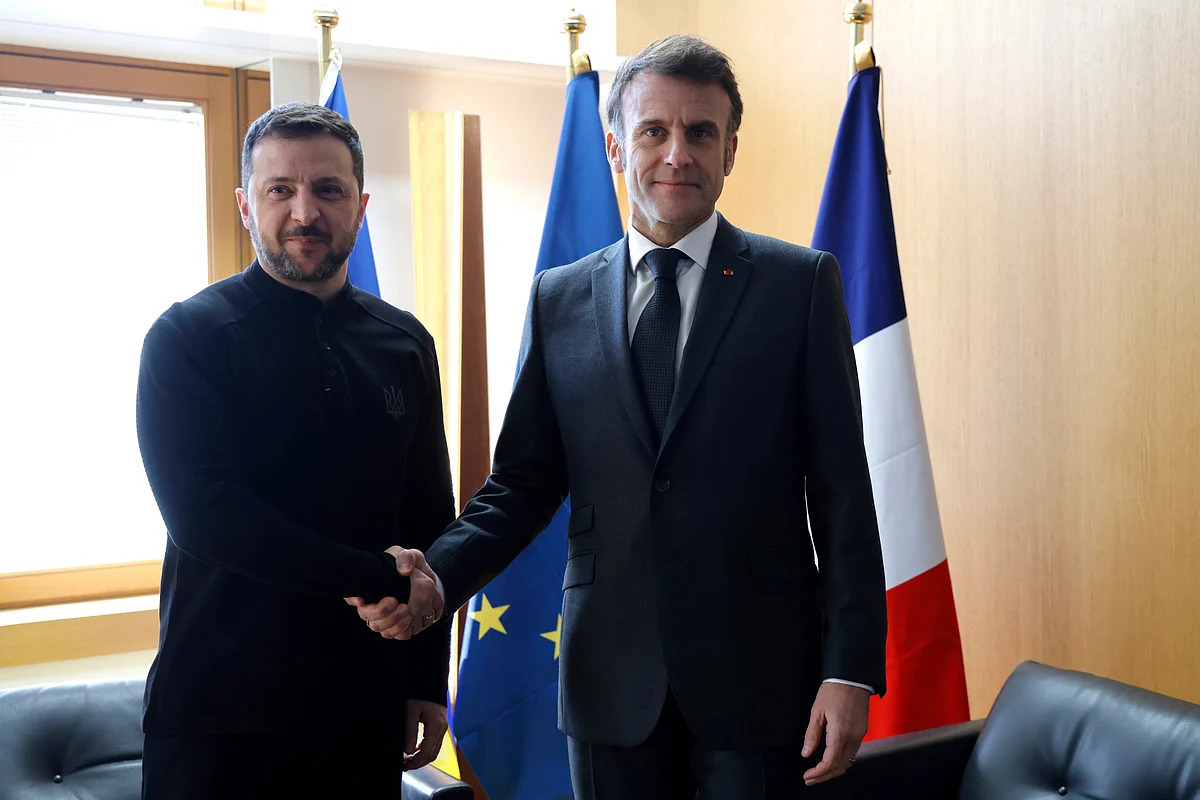
EU Will Spend Billions More on Defence But That Still Won’t Do Much for Ukraine
Leadership might require going beyond the seeming contradiction of a focus on military strength or cooperation.

advertisement
On 3 March, US President Donald Trump paused all US military aid to Ukraine. This move was apparently triggered by a heated exchange a few days earlier between Trump, Vice President JD Vance, and Ukrainian President Volodymyr Zelensky in the Oval Office.
In response, European Union (EU) leaders have now committed to rearm Europe by mobilising €800 billion (about A$1.4 trillion) in defence spending.
This jump in defence spending is unprecedented for the EU, with 2024 spending hitting a previous record high of €326 billion (A$558 billion). At the same time, the United Kingdom has committed to the biggest increase in defence spending since the Cold War. The EU’s united front will create strong defences and deter a direct attack on EU nations.
However, for Ukraine, it will not lead to a military victory in its war with Russia. While Europe has stepped up funding, this is not sufficient for Ukraine to defeat Russian forces currently occupying about 20 percent of the country.
For Ukraine, the withdrawal of US support will severely strain their ability to keep fighting. Ukraine will likely need to find a way to freeze the conflict this year. This may mean a temporary truce that does not formally cede Ukrainian territory to Russia.
A Trumpian Worldview
The vastly different approaches of the US under Trump and the EU point to a deeper ideological divide. While the Trump administration has acted more quickly and assertively in foreign affairs than many expected, its approach is not surprising.
Since Trump won the US presidential election in November last year, Europe and Ukraine have known that a shift in US policy would be on the cards.
Trump (and, it appears, his core support base) hold a “great power politics” approach to world affairs.
This approach assumes we live in a competitive world where countries are motivated to maximise gains and dominate. Outcomes can be achieved through punishments or rewards.
Countries with greater military or economic strength “count” more. They are expected to impose their will on weaker countries. This viewpoint underpinned much of the colonial activity of the 19th and 20th centuries. This worldview expects conflict – and it expects stronger countries to “win”.
Consistent with Trump’s outlook, Russia is a regional power that has the “right” to control smaller countries in its neighbourhood.
His worldview leads to the logical and consistent conclusion that Russia will seek to control countries within its sphere of influence.
Russia’s full-scale invasion of Ukraine represented an attempt to impose its will on a militarily weaker country that it considered to be in its rightful domain of control.
The EU Alternative
Contrary to this view, the EU is founded on the premise that countries can work together for mutual gains through collaboration and consensus. This approach underpins the operation of what are called the Bretton Woods Institutions created in the aftermath of World War II.
This worldview expects collaboration rather than conflict. Mutually beneficial and cooperative solutions are found through dialogue and negotiation.
Zelensky has himself consistently framed the conflict as being about a clash of values: freedom and democracy versus authoritarianism and control.
A New World Order
Since Trump’s second inauguration, European leaders have presented a united front, motivated by facing a world where US military backing cannot be guaranteed.
EU leaders previously followed a path of cooperation with Russia, with limited success. Following Russia’s annexation of Crimea in 2014, France and Germany helped mediate the Minsk Agreements. These agreements, signed in 2014 and 2015, were designed to prevent further incursions by Russian-backed groups into Ukrainian sovereign territory.
This did not prevent Russia’s full-scale invasion of Ukraine in 2022.
In an emerging new world order, leadership might require going beyond the seeming contradiction of a focus on military strength or cooperation. Leaders may need to integrate both.
(The author is a senior lecturer in International Relations, Flinders University. This article is republished from The Conversation under a Creative Commons License. Read the original article.)
- Access to all paywalled content on site
- Ad-free experience across The Quint
- Early previews of our Special Projects
Published: undefined